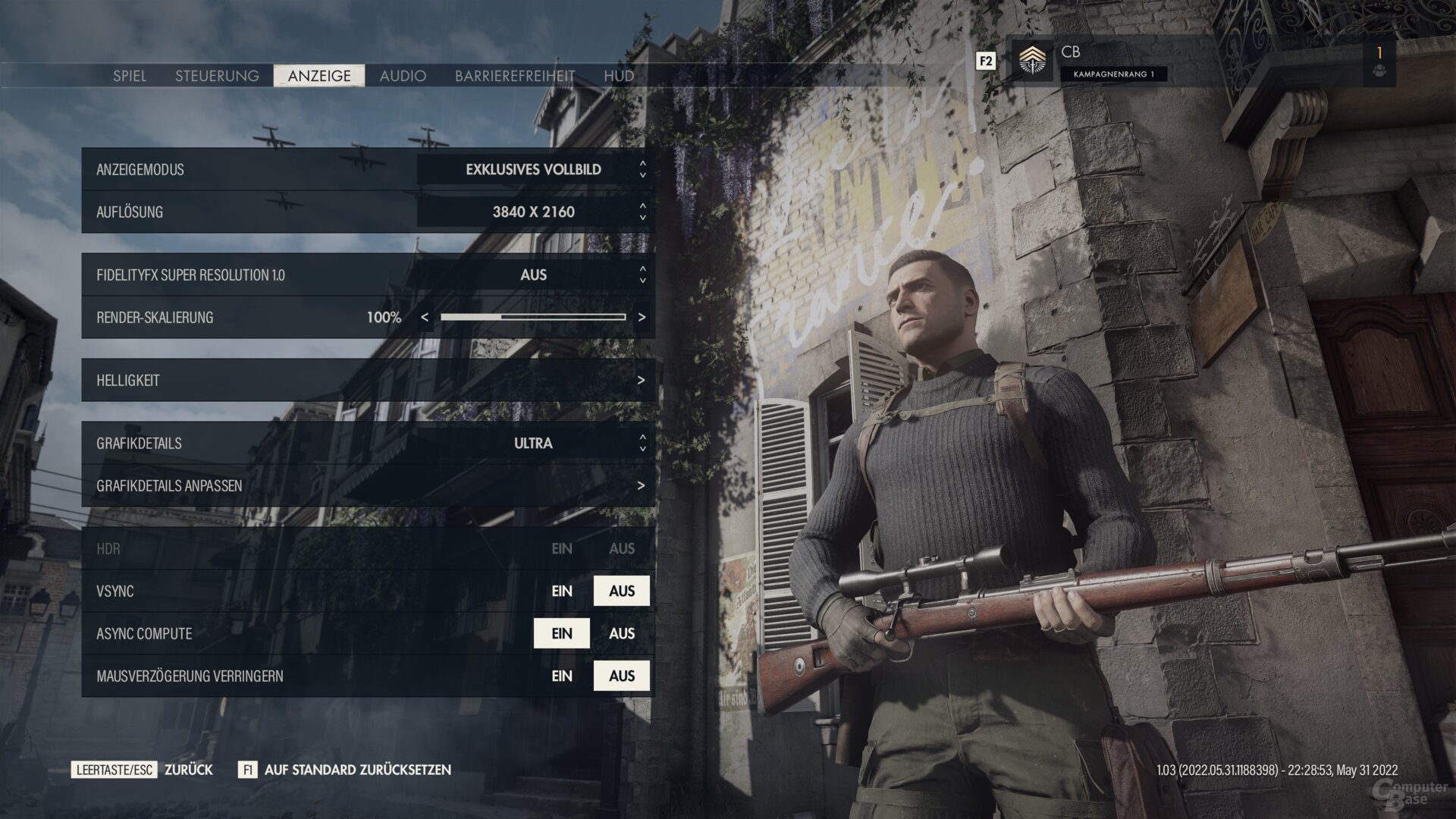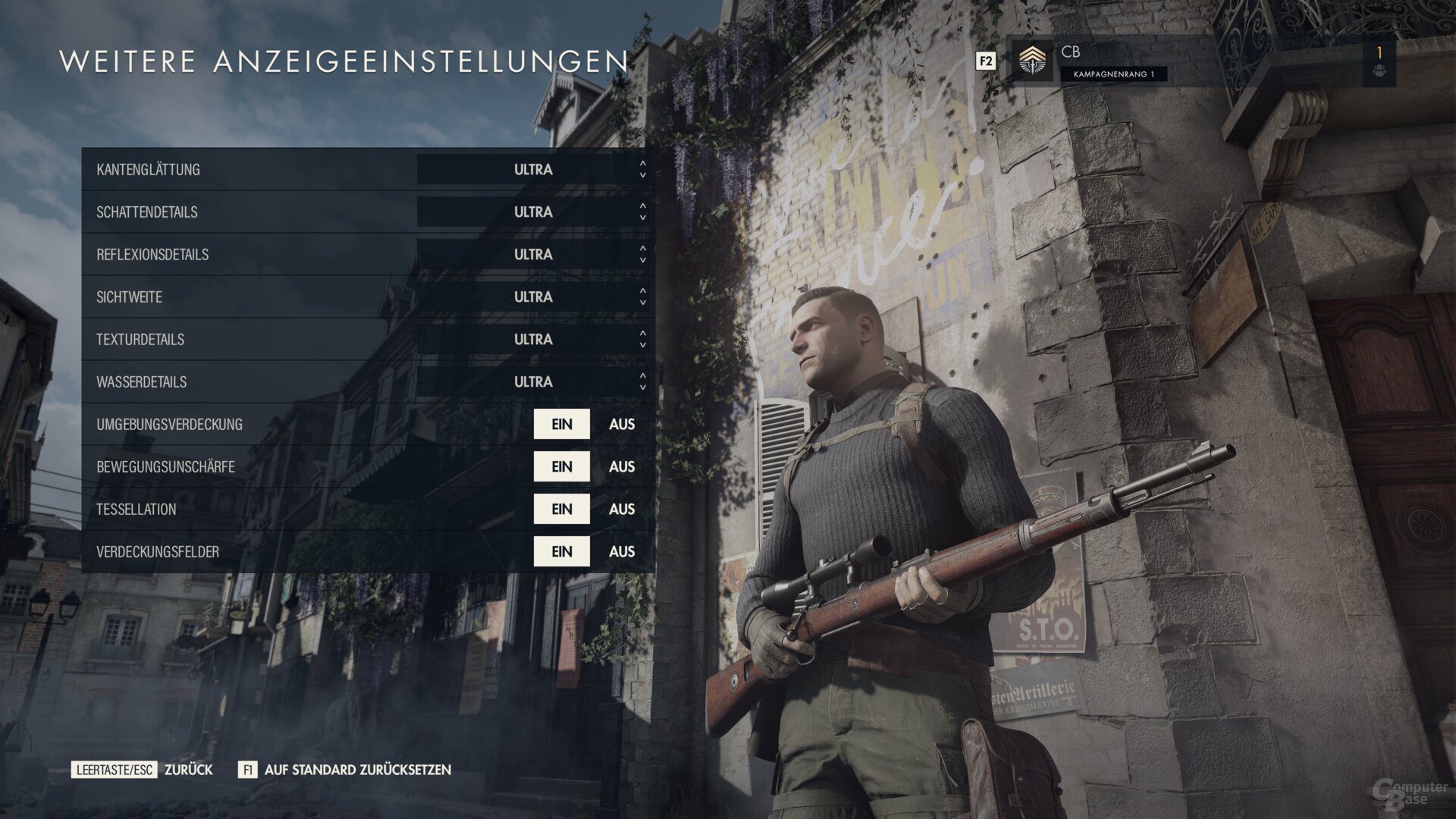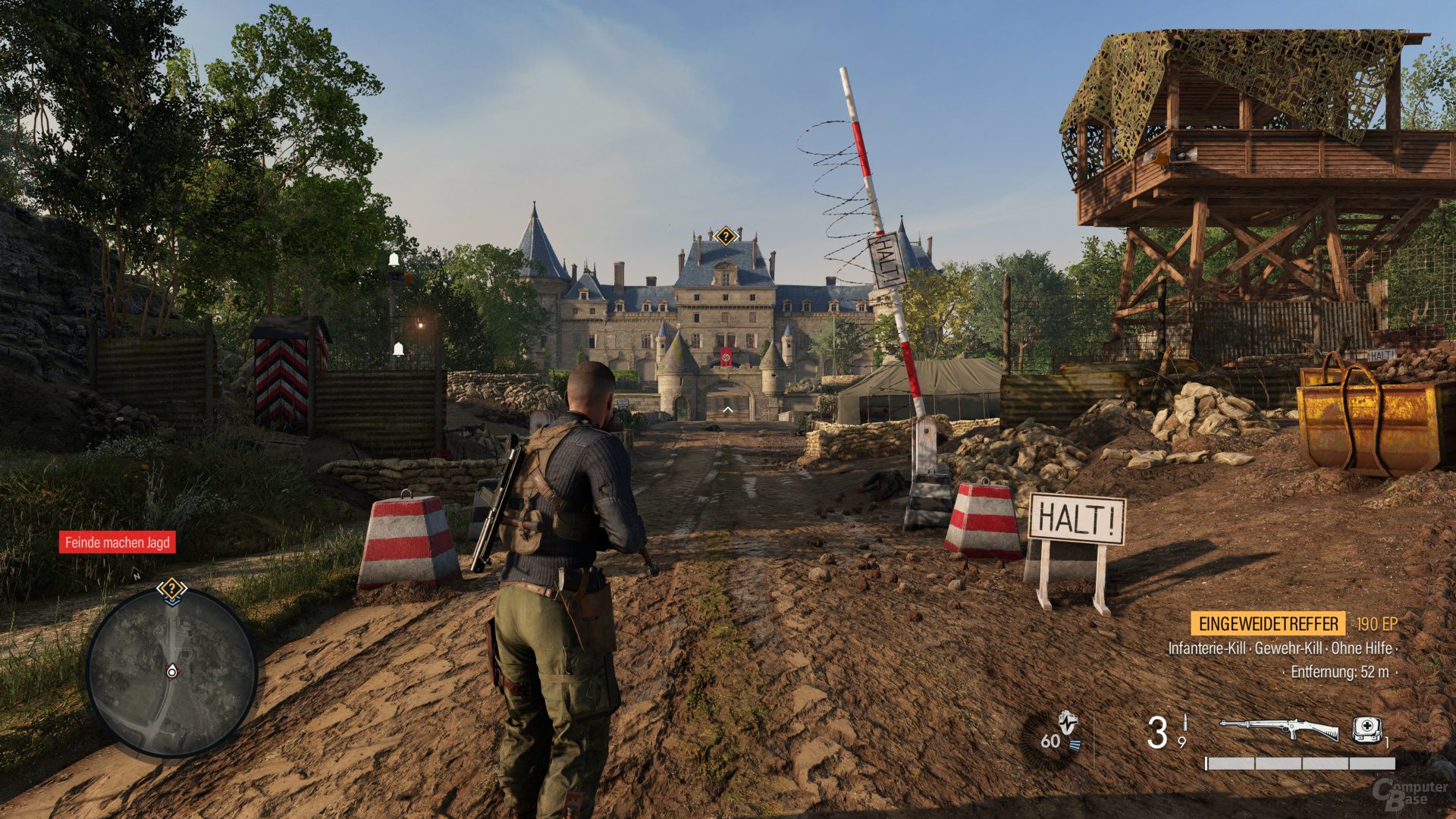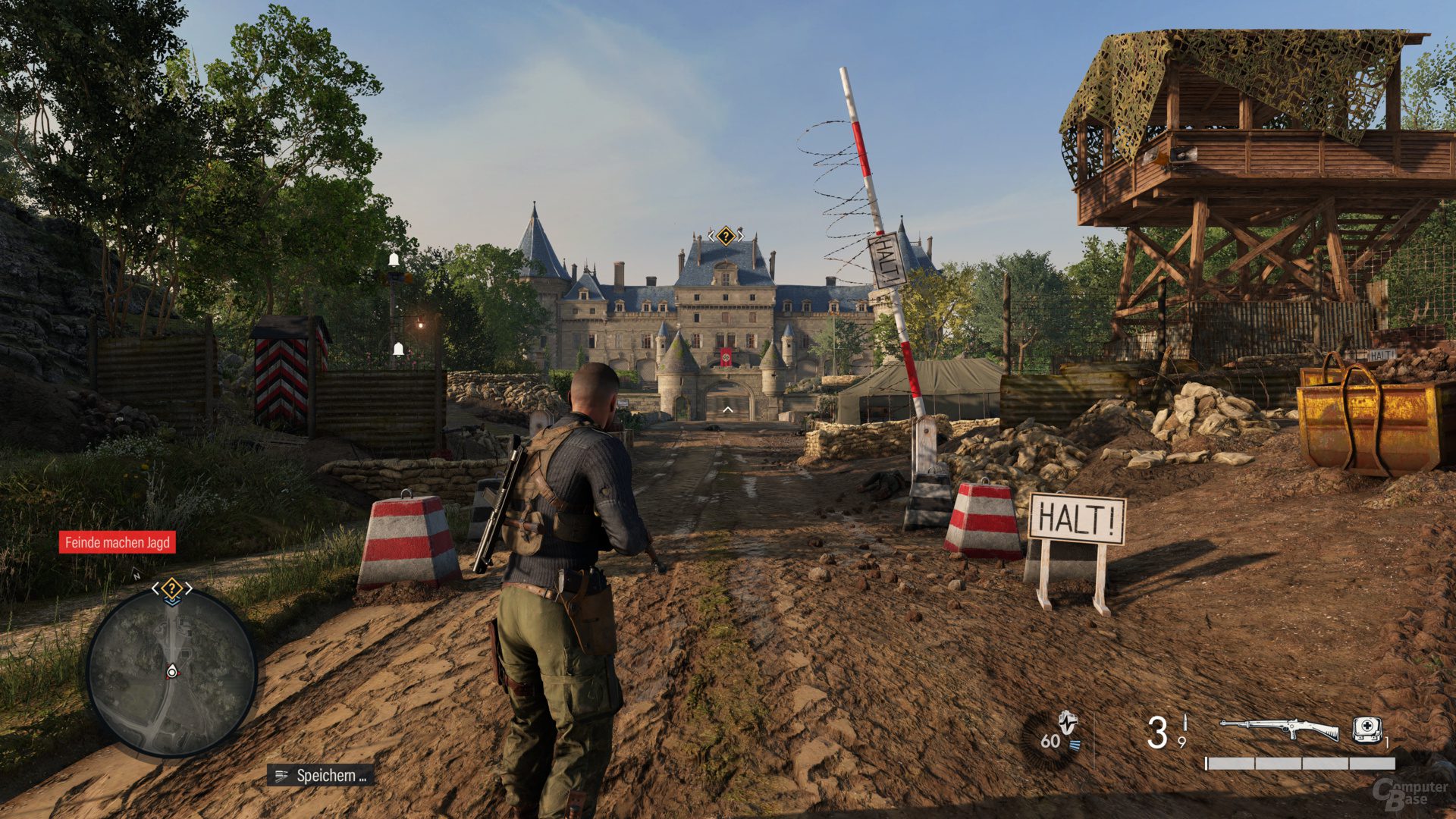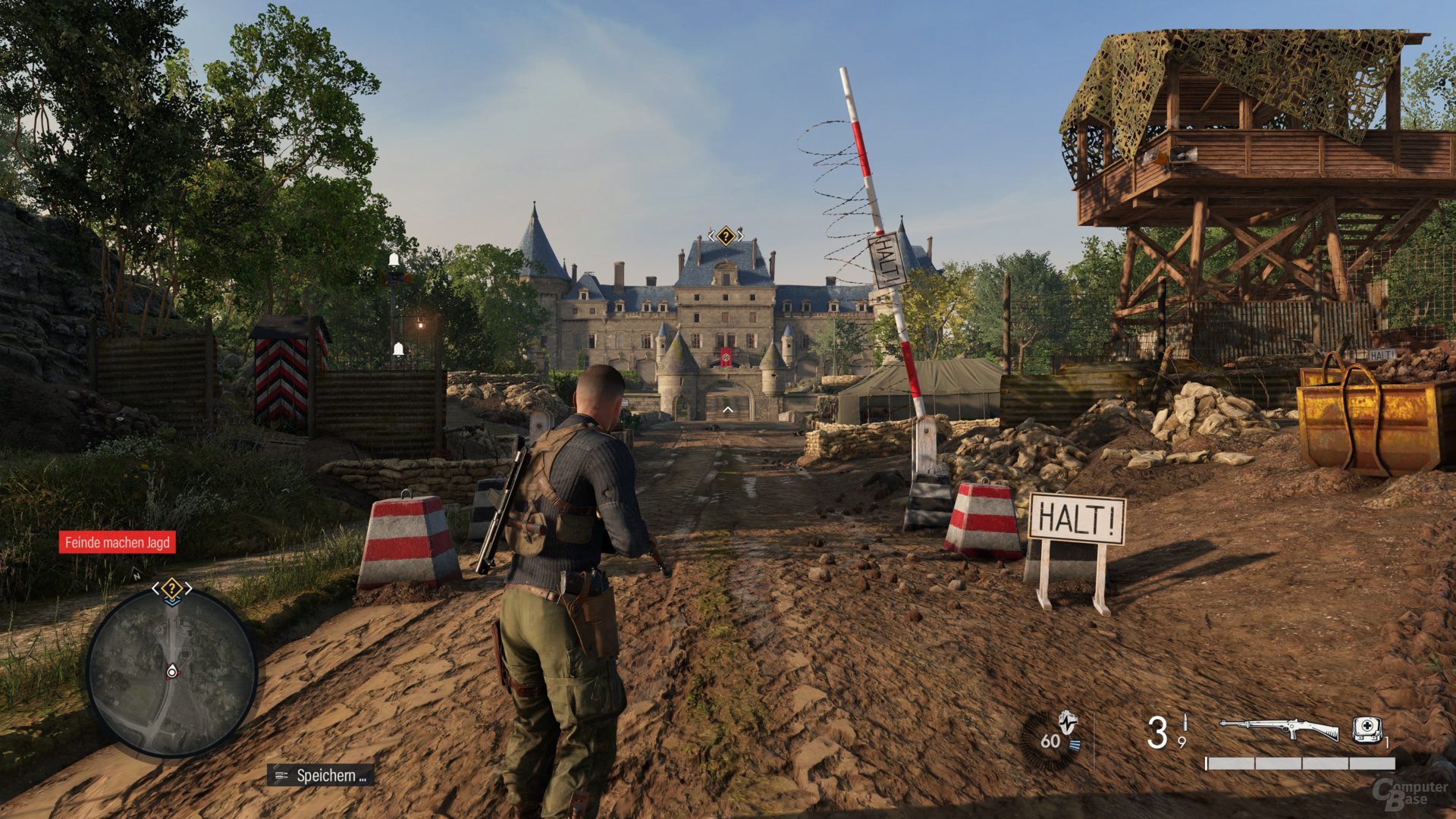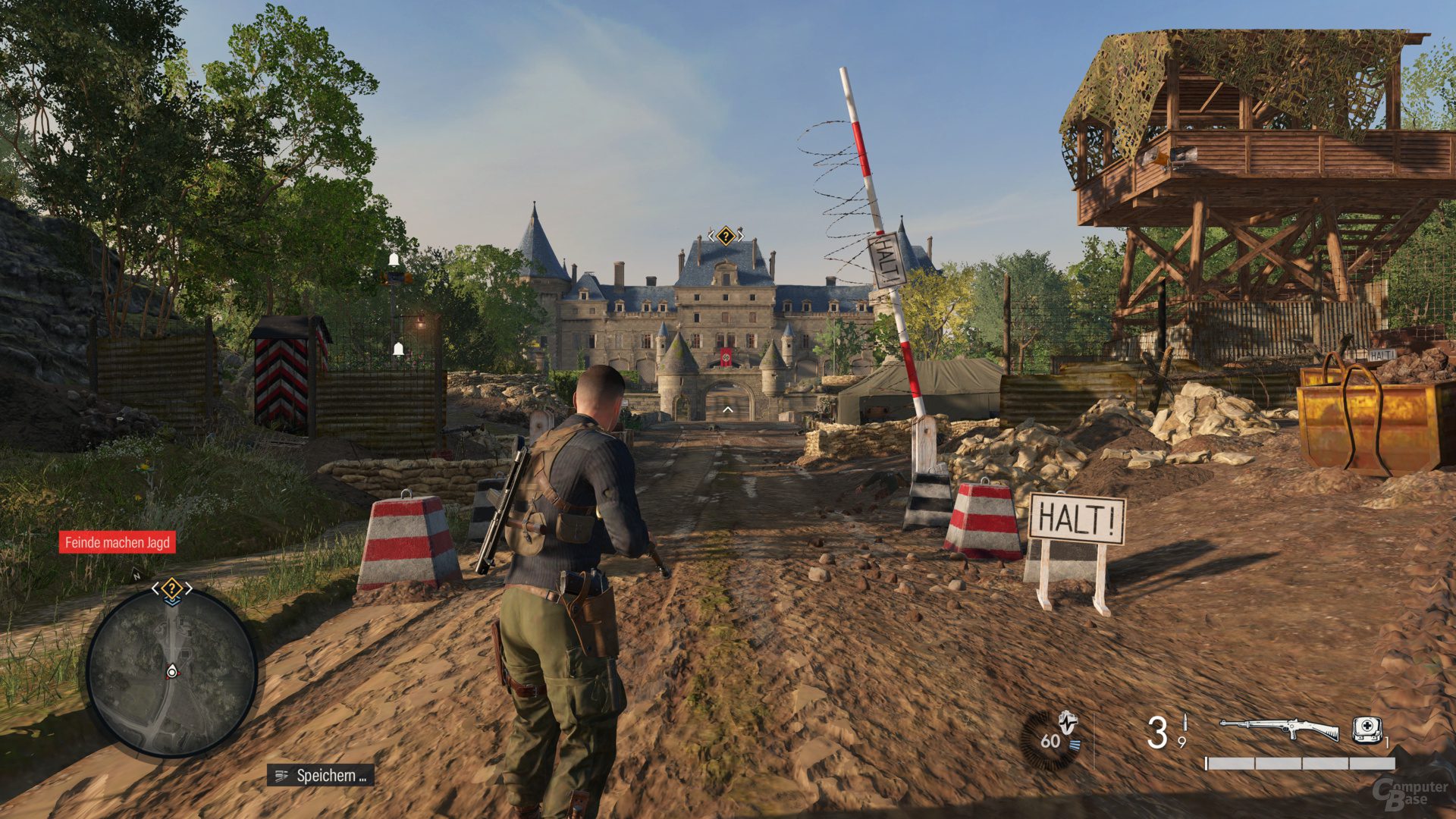In Sniper Elite 5, Rebellion once again sends players on the hunt with the sniper rifle. In addition to the usual graphics card benchmarks with the PC version, ComputerBase also took a closer look at the differences between DirectX 12 and Vulkan. Textures and frame rate are outstanding, but flicker.
Sniper Elite 5 brings more of the same
After just over five years, Rebellion releases the fifth part of the well-known Sniper Elite series of games. And with Sniper Elite 5, the buyer gets exactly the same as the previous pieces, only a little more modern and more. If you liked the predecessors, you will also be happy with the latest version.
Rebellion again uses the in-house Asura engine, but has updated it compared to its direct predecessor. Visually, the AA game makes a decent impression with one exception, but of course it can’t keep up with a full-scale production (more on that later). Surface details and textures, as well as frame pacing, are the graphics highlights, but in terms of animation, lighting, and character rendering, Sniper Elite 5 can’t quite keep up with other games. And it blinks a lot.
The graphics flash all at once.
Sniper Elite 5 is based on a post-process version without a temporal component for anti-aliasing. As a result, graphics are fairly sharp and bug-free even at low resolutions, but many objects are not captured correctly by antialiasing. The result: it flashes when you move.
Even at high resolutions like Ultra HD, Sniper Elite 5 still flickers clearly, but at lower resolutions it’s extreme. Here the developers should definitely have opted for temporal smoothing, because the solution used in the game is completely overwhelmed.
FSR 1.0 only makes things worse
Sniper Elite 5 supports AMD’s FidelityFX Super Resolution 1.0, which as a purely spatial enhancement makes the effect even worse. Because unlike FSR 2.0, FSR 1.0 can’t do anything about flickering. Consequently, Rebellion should have dispensed with FSR 1.0 entirely, the technology cannot be used sensibly. Also, since Sniper Elite 5 lacks temporal smoothing, modern upsampling in the form of FSR 2.0 or Nvidia DLSS is unlikely to be patched. Because this would mean more work than with other games, which is probably not possible for the relatively small development team.
In addition to the low-level DirectX 12 API, Sniper Elite 5 also supports Vulkan; DirectX 12 is active by default. Also, Async Compute can be turned on or off for both interfaces. By default, the feature is on.
Standard rate in chart menu
Sniper Elite 5 offers a rudimentary graphics menu on PC. There are several individual graphic options and four different graphic presets: “Low”, “Medium”, “High” and “Ultra”, where “Ultra” also represents the maximum level of detail. Additionally, the game itself downsamples and upsamples are available, meaning the rendering resolution can be freely adjusted in 5 percent increments between 50 and 200 percent.
It is not possible to switch between DirectX 12 and Vulkan APIs in the game itself, this is only possible in its own launcher and thus before starting Sniper Elite 5.
Four graphic presets with visible differences
The four graphic presets “Ultra”, “High”, “Medium” and “Low” show optical differences. For example, more objects cast shadows on “Ultra” than on “High”, and some of the shadows have a higher resolution. In addition, the visibility with “Ultra” is higher. Objects at a distance show more detail, or sometimes only show up first. In general, the differences are not too big and you can switch back to “High” without hesitation in case of performance problems.
The “Medium” setting works much more aggressively. Textures clearly lose their sharpness and surface details are visibly reduced. Shadows are further reduced and view range is noticeably reduced even at medium distances. The low preset uses the same tuning screws even more intensively. Therefore “Low” and “Medium” should be discouraged for optical reasons.
Each graphics preset brings a huge FPS boost in Sniper Elite 5. Those who forgo the highest “Ultra” setting and instead reduce graphics to “High” throttle the Radeon RX 6800 XT by 46 percent and the GeForce RTX 3080 by 48 percent. Consequently, the tuning potential is already high with this setup, but it would be even more possible in case of performance issues.
Because the medium presets increase the FPS on the AMD GPU by another 29 percent, with the Nvidia counterpart it’s 25 percent. And with the low preset there is another final boost of 38 or 31 percent.

Introvert. Beer guru. Communicator. Travel fanatic. Web advocate. Certified alcohol geek. Tv buff. Subtly charming internet aficionado.

